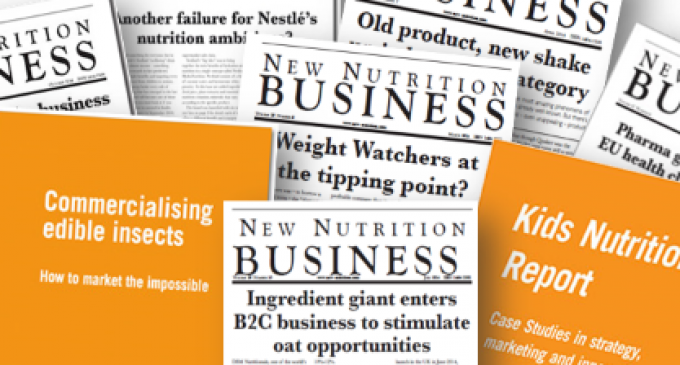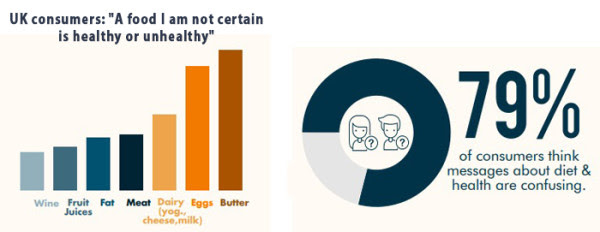UK Consumers are Confused About Food and Health

UK consumers think that information about diet and health is confusing, and they would rather believe the internet than a dietitian. In a survey of 2,000 consumers in the UK, US, Spain and Australia, conducted by New Nutrition Business, 79% said they find messages surrounding health, food and nutrition confusing.
Because of changing dietary advice, more and more people are uncertain about which foods are healthy or unhealthy. The foods that UK consumers are most confused about are dairy, eggs and butter.
 “Consumers in the UK, and worldwide are confused about whether certain foods are healthy or not. Online sources are their go-to place for dietary information, where they often find contradictory advice. So, they pick and choose a dietary pattern that they believe suits them best and craft their own eating style,” says Joana Maricato, research manager at New Nutrition Business.
“Consumers in the UK, and worldwide are confused about whether certain foods are healthy or not. Online sources are their go-to place for dietary information, where they often find contradictory advice. So, they pick and choose a dietary pattern that they believe suits them best and craft their own eating style,” says Joana Maricato, research manager at New Nutrition Business.
Another contributing factor to the confusion is loss of trust in official dietary guidelines. When deciding what is healthy, the majority of UK consumers (34%) rely on online sources such as blogs rather than dietitians or nutritionists.
In fact only 14% of those surveyed would ask a dietitian for advice – just a few more people than the group (11%) who would watch a documentary.
This tendency is strongest in Spain, where 46% of consumers go online for their health information.
One thing most people surveyed did tend to agree on is that they should be consuming less sugar. In the UK, 86% of consumers said they believe sugar is bad for their health and 89% said they would like to reduce the amount of sugar they eat every day.
The idea that sugar is an enemy of health has become so strong that some consumers are avoiding foods that they see as sources of “hidden sugars” or even relatively low levels of naturally present sugars. Fruit juices, for example, were described as “high in sugar” by 46% of UK participants.
At the same time, some consumers’ views on sugar and health are directly at odds with what nutrition science says – for example, 50% of those surveyed thought brown sugar was healthier than white sugar.
These conflicting beliefs about sugar are a reflection of consumers’ overall uncertainty about what is healthy.

































